More than one in three adults worldwide has fat building up in their liver - not from drinking alcohol, but from how they eat. This isn’t just a minor issue. It’s called nonalcoholic fatty liver disease (NAFLD), now also known as metabolic dysfunction-associated steatotic liver disease (MASLD). And it’s quietly becoming the leading cause of chronic liver disease in countries like Australia, the U.S., and across Europe. The good news? You can reverse it. Not with pills, not with surgery - but with changes to what’s on your plate and how much you move.
The Gut-Liver Connection You Can’t Ignore
Your liver and your gut aren’t just neighbors. They’re partners. Every day, your gut sends signals - some helpful, some harmful - straight to your liver through the portal vein. When your gut microbiome is out of balance, it starts leaking toxins into your bloodstream. One of those toxins, called lipopolysaccharide (LPS), triggers inflammation in the liver. Studies show NAFLD patients have 2.3 times more LPS in their blood than healthy people. That’s not coincidence. That’s cause.At the same time, your gut bacteria stop making enough short-chain fatty acids like butyrate. These are the fuel your gut lining needs to stay strong. Without them, your gut becomes leaky, letting more bad stuff through. People with NAFLD have about 58% less butyrate in their stool than those without it. That’s a huge gap.
And it’s not just about quantity. The types of bacteria change too. Many NAFLD patients have more of certain strains like Lachnospiraceae and Barnesiella, and fewer of the protective ones like Bacteroides vulgatus. This imbalance isn’t just a side effect - it’s part of what drives the disease forward.
Diet Is the Most Powerful Tool You Have
If you’ve been told to lose weight to fix your fatty liver, you’re not wrong. But weight loss alone doesn’t fix the gut. Diet does. And not just any diet.The Mediterranean diet isn’t a trend. It’s a lifeline. In a 6-month study with 70 NAFLD patients, those who ate a Mediterranean diet with 30 grams of walnuts every day cut liver fat by 32%. Why? Walnuts are packed with fiber and healthy fats that feed good gut bacteria. Olive oil, vegetables, whole grains, legumes, nuts, and fish - these aren’t just "healthy foods." They’re gut repair tools.
Here’s what works:
- Get 25-30 grams of fiber a day - from oats, lentils, broccoli, apples, and chia seeds.
- Replace sugary drinks and processed snacks with whole foods. Fructose (the sugar in soda and candy) is especially bad for the liver. Keep it under 25 grams per day.
- Use olive oil, avocado, and nuts for fats. These help reduce inflammation and support bile flow.
- Avoid artificial sweeteners. Some studies show they worsen gut dysbiosis, even if they’re calorie-free.
One of the most effective strategies? Intermittent fasting - specifically the 5:2 method. Five days of normal eating, two days of 500-600 calories. In online communities like Reddit’s r/NAFLD, 63% of users say this helped reduce their fatigue and bloating. It’s not magic. It gives your gut a break, lowers insulin spikes, and lets your liver clean up excess fat.
Weight Loss Isn’t Optional - It’s the Treatment
Losing weight isn’t about looking better. It’s about saving your liver. The numbers don’t lie:- 5-7% weight loss improves liver fat in 81% of people.
- 10% weight loss clears NASH (the more serious form) in 45% of cases.
- Those who lose 7-10% through structured programs keep their liver healthy two years later in 68% of cases.
That’s way better than trying to do it alone. People who try to lose weight without support - no plan, no tracking, no accountability - only keep it off in 29% of cases. That’s why programs that combine diet, exercise, and behavioral coaching work so much better.
You don’t need to starve. Aim for a 500-750 calorie deficit per day. That means losing 0.5-1 kg per week. Slow and steady wins. Crash diets? They make your liver worse. They trigger stress hormones that increase fat storage and worsen insulin resistance.
Exercise helps too - but not because it burns calories. Walking 30 minutes a day improves gut motility and reduces liver fat even if you don’t lose weight. Strength training twice a week helps your body use sugar better. That’s key.

Probiotics and Prebiotics: Helpful, But Not a Magic Bullet
You’ve seen the ads. Probiotic supplements promise to fix everything. They don’t. But they can help - if you pick the right ones and use them right.Studies show that specific multi-strain probiotics reduce liver fat by 23% and lower liver enzyme levels (ALT) by 31% after 24 weeks. The best strains? Lactobacillus rhamnosus GG, Bifidobacterium longum, and Streptococcus thermophilus. You need at least 10 billion colony-forming units (CFU) per day, taken consistently.
Prebiotics - the food for good bacteria - are even more important. Inulin and fructo-oligosaccharides (FOS) from garlic, onions, asparagus, and chicory root increase butyrate production by 47% in just 12 weeks. That means a stronger gut barrier and less liver inflammation.
But here’s the catch: 22% of people stop taking probiotics because they cause bloating or gas. Start low. Try 1-2 billion CFU per day for the first week. Then slowly increase. And always pair them with fiber-rich foods. Probiotics without prebiotics are like planting seeds in concrete.
What Doesn’t Work (And Why)
There’s a lot of noise out there. Let’s cut through it.- Detox teas and liver cleanses? They don’t change your gut microbiome or liver fat. They just make you poop more.
- Extreme low-carb diets? They can help short-term, but many people regain weight - and the gut diversity doesn’t recover.
- Fecal transplants? Still experimental. One small study showed minor enzyme improvements, but no change in liver scarring.
- Just taking a probiotic pill and eating junk food? That’s like putting a bandage on a broken leg.
The truth? There’s no shortcut. The gut-liver axis responds to consistent, long-term habits - not quick fixes.
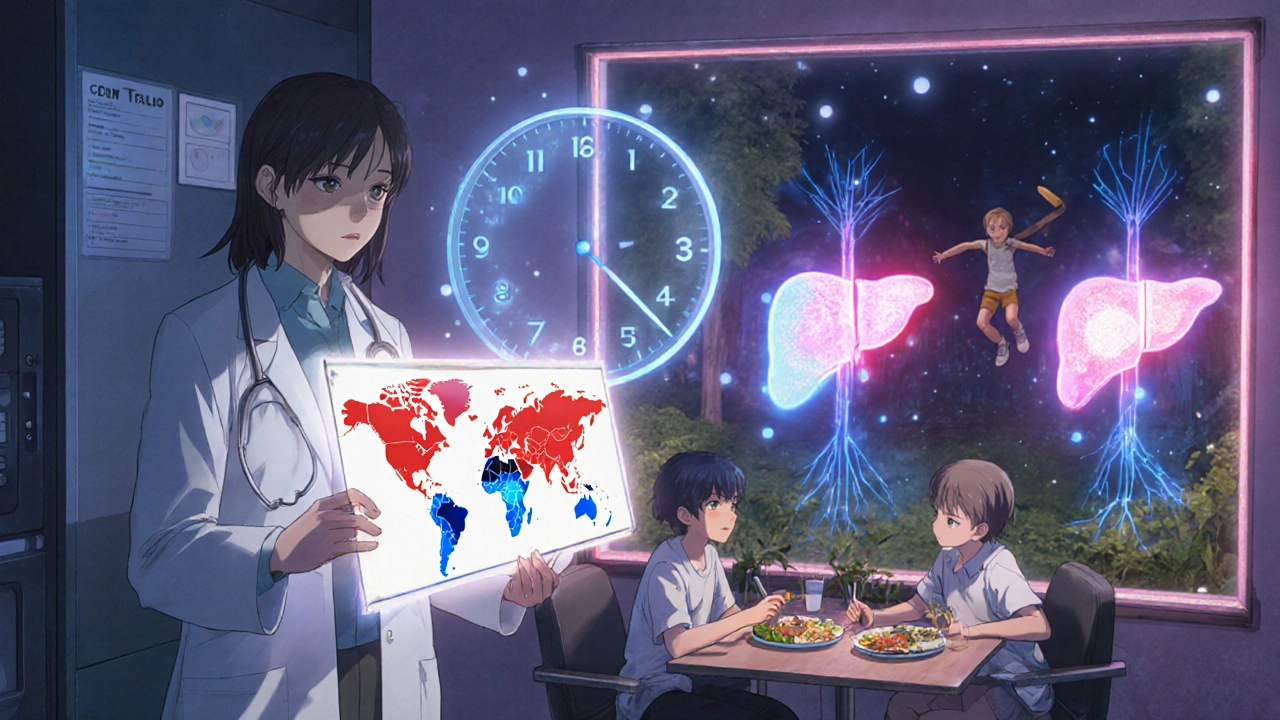
What’s Next? The Future of NAFLD Treatment
Science is moving fast. In July 2024, a new drug called VE-117 - a mix of 11 specific gut bacteria - showed a 38% drop in liver fat in early trials. It’s designed to activate the FXR receptor, which tells your liver to stop storing fat.But drugs like this won’t replace diet. They’ll support it. Experts agree: the future of NAFLD care will combine personalized nutrition, microbiome testing, and lifestyle coaching. By 2030, doctors may routinely check your gut bacteria before prescribing treatment.
For now, the best treatment is still the same: eat real food, move your body, lose weight slowly, and give your gut the fuel it needs to heal.
Start Here: Your 7-Day Action Plan
You don’t need to overhaul everything tomorrow. Here’s a simple start:- Day 1-2: Cut out sugary drinks. Swap soda and juice for water, herbal tea, or sparkling water with lemon.
- Day 3: Add one serving of fiber-rich food at every meal - beans, broccoli, oats, or an apple.
- Day 4: Replace one processed snack with a handful of walnuts or almonds.
- Day 5: Walk for 30 minutes after dinner. No phone. Just movement.
- Day 6: Try the 16:8 intermittent fast - eat only between 10 a.m. and 6 p.m.
- Day 7: Write down how you feel. Less bloating? More energy? That’s your gut talking.
Do this for 4 weeks. Then reassess. You don’t need to be perfect. You just need to be consistent.
Can you reverse fatty liver without losing weight?
It’s extremely unlikely. Fat builds up in the liver because your body is storing too much energy. Even modest weight loss - 5-7% of your total body weight - improves liver fat in over 80% of cases. You can improve gut health with diet and probiotics, but without reducing overall body fat, the liver will keep accumulating fat. Weight loss is the most proven way to reverse it.
Is coffee good for NAFLD?
Yes - and the evidence is strong. People who drink 2-3 cups of black coffee daily have lower rates of liver fibrosis and scarring. Coffee contains antioxidants that reduce inflammation and may improve insulin sensitivity. Skip the sugar and cream. Just plain black coffee is what studies show helps.
Do I need to take a probiotic supplement?
Not necessarily - but it can help. If you’re already eating a high-fiber, plant-rich diet, your gut bacteria may recover on their own. But if you’ve had antibiotics recently, have digestive issues, or haven’t seen improvement after 3 months of diet changes, a multi-strain probiotic (10-20 billion CFU) for at least 12 weeks is worth trying. Look for strains like Lactobacillus rhamnosus GG and Bifidobacterium longum.
How long does it take to see results?
You might feel better - less bloating, more energy - in 2-4 weeks. Liver fat starts to drop after 8-12 weeks of consistent diet and weight loss. Blood tests (like ALT levels) usually improve by 3 months. Full reversal of NASH can take 6-12 months, depending on how much weight you lose and how strictly you stick to the plan.
Can children get NAFLD?
Yes. It’s now the most common liver condition in children in developed countries. The causes are the same: poor diet, lack of movement, and excess weight. The good news? Kids’ livers respond even faster to diet and lifestyle changes than adults. Early intervention can prevent lifelong liver damage.
Is alcohol okay if I have NAFLD?
No. Even small amounts of alcohol can speed up liver damage in people with NAFLD. The disease is called "nonalcoholic" because it’s not caused by alcohol - but alcohol makes it worse. Doctors recommend avoiding it completely until your liver has fully recovered.

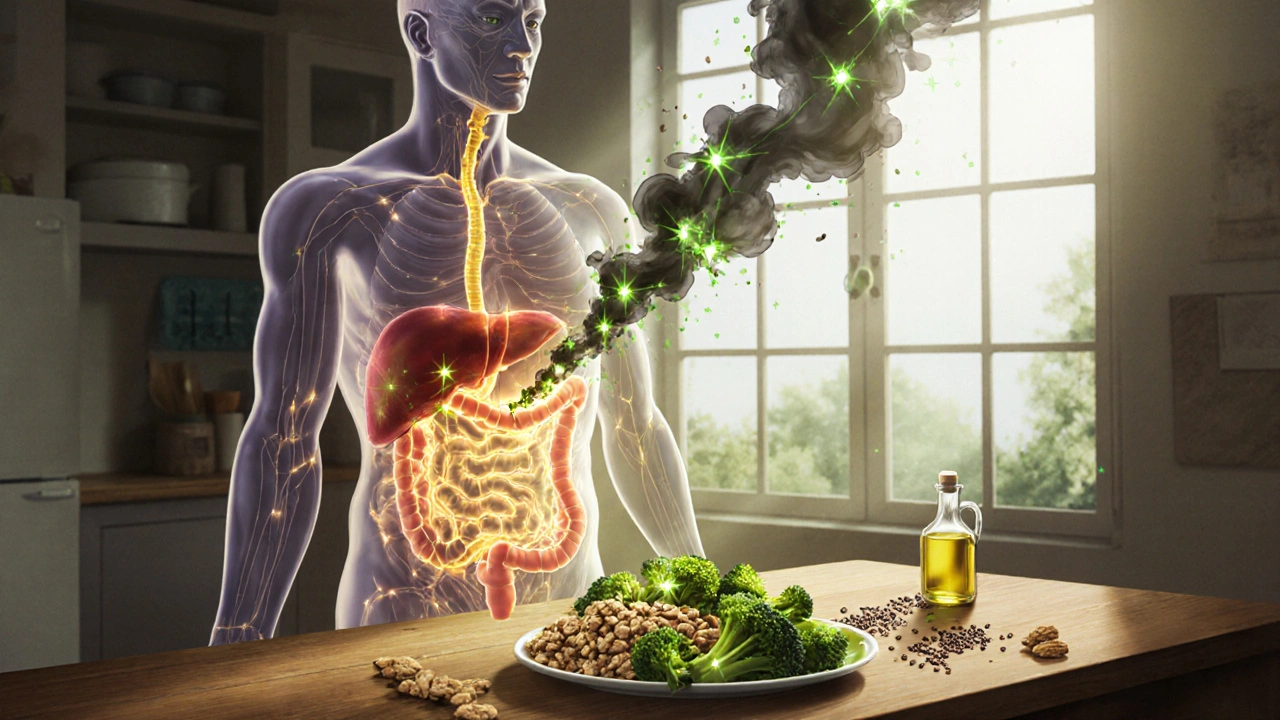
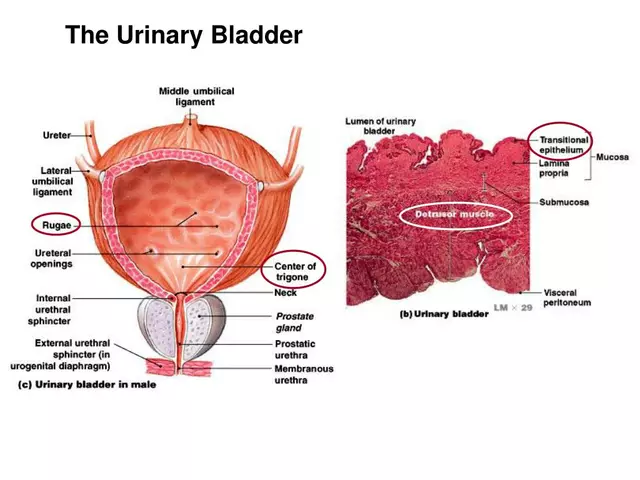
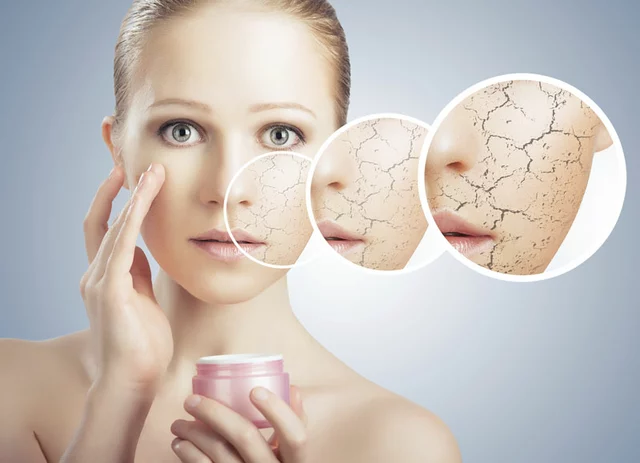
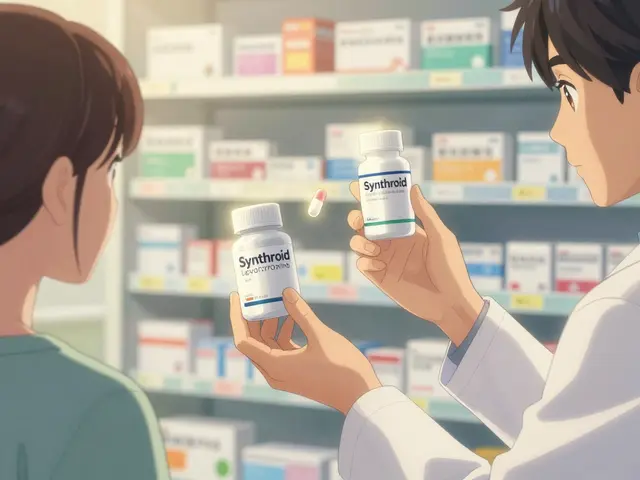
Let’s be real-this post is just a 3000-word ad for the Mediterranean diet with extra fiber hype. Sure, LPS and butyrate sound fancy, but if you’re not tracking your macros or doing a DEXA scan, you’re just rearranging deck chairs on the Titanic. Also, 63% of Reddit users say something helps? That’s not data, that’s anecdotal noise wrapped in a spreadsheet.
And don’t get me started on probiotics. You think popping a pill fixes a microbiome wrecked by 15 years of Twinkies? Please. The gut’s not a petri dish you can inoculate. It’s a warzone. You need systemic change-not a supplement playlist.
Actually, I’ve been doing the 5:2 fast + walnuts + walking for 10 weeks now. My ALT dropped from 82 to 39. No meds. No surgery. Just food and movement. I know it sounds too simple-but it works. I used to feel like a zombie after lunch. Now I nap less and actually enjoy my kids.
Also, coffee. Black. Two cups a day. No sugar. No cream. Just the bitter goodness. It’s not magic. But it’s helping. 🙏
Interesting. But you’ve omitted the epistemological paradox: if NAFLD is caused by metabolic dysfunction, and metabolic dysfunction is defined by the presence of NAFLD-then aren’t we just circularly defining disease as a symptom of itself? The language here is medicalized mysticism.
Also, the 2.3x LPS statistic? Source? Is it from a 2018 RCT with n=47? Or a meta-analysis with confounding variables like BMI and insulin resistance? You can’t cite numbers like they’re gospel when the entire field is still in its observational infancy.
And don’t even get me started on ‘gut repair tools’-that’s not science, that’s wellness branding with a PhD.
But hey, I’m just a guy with a blog and a penchant for pedantry.
There’s something beautiful about how the body heals when we stop fighting it and start listening. Your liver isn’t broken-it’s overwhelmed. It’s not your enemy. It’s your silent partner, working overtime because you’ve been feeding it poison disguised as convenience.
Changing your diet isn’t punishment. It’s a love letter to your cells. Walnuts aren’t just fat-they’re quiet healers. Olive oil isn’t just oil-it’s liquid peace. And walking after dinner? That’s not exercise. That’s meditation in motion.
You don’t need to be perfect. You just need to show up. Again. And again. And again.
I’ve seen people reverse this. Not because they followed a plan-but because they finally chose themselves.
So let me get this straight. You’re telling me the solution to a complex metabolic disorder is… eat more broccoli and skip soda?
And somehow that’s not just… common sense?
Why does it take a 2000-word essay to say ‘stop eating garbage and move your body’?
Also, probiotics. Right. Because nothing says ‘I’ve read a study’ like buying a $40 jar of bacteria.
Still, I’m not mad. Just… tired.
Also, coffee. Yes. Black. Two cups. Done.
That’s it. That’s the tweet.
Look, I’m sick of this ‘Western diet’ guilt trip. You think people in India or Africa have NAFLD because they eat too much olive oil? Nah. It’s the sugar. The fructose. The corn syrup. The processed junk pushed by Big Food and sold as ‘healthy’ by influencers. This isn’t about ‘eating clean’-it’s about fighting corporate poisoning.
Also, why are all the studies funded by nut companies? Walnuts? Really? Next they’ll say turmeric cures cancer.
And don’t get me started on ‘intermittent fasting’-that’s just a fancy way to say ‘starve yourself for 16 hours and then binge on avocado toast.’
Real solution? Tax sugar. Ban ads for sugary drinks. Regulate food marketing. Not ‘eat more broccoli’.
While the general recommendations presented are empirically supported, it is imperative to recognize that the heterogeneity of NAFLD pathophysiology necessitates individualized therapeutic approaches. The notion that dietary modification alone constitutes a definitive therapeutic modality is both reductionist and potentially misleading, particularly in the context of advanced fibrosis.
Furthermore, the reliance on self-reported data from online communities (e.g., Reddit) as a primary evidence source undermines the scientific rigor of this discourse. While anecdotal reports may provide qualitative insight, they are subject to selection bias, recall error, and placebo effect.
Probiotic supplementation, while promising in select trials, lacks standardization in strain composition, dosage, and duration. The assertion that ‘probiotics without prebiotics are like planting seeds in concrete’ is poetically apt but clinically imprecise.
Recommendations should be contextualized within clinical staging, comorbidities, and genetic predisposition-not generalized as a one-size-fits-all protocol.
i just started this 7-day plan and already i feel less bloated?? like, seriously. i thought i was just ‘always gassy’ but nope-soda was the culprit. i swapped it for sparkling water with lemon and my stomach stopped feeling like a balloon. also, i walked after dinner last night and didn’t check my phone once. it was… peaceful?
and i didn’t even try the fasting yet. i’m scared. but also kinda excited. like, maybe i can fix this without pills? maybe my liver is just tired and needs a nap?
thank you for not making me feel like a failure. i’ve tried diets before. this feels different. like… kind.
but what about fructose from fruit? is apple bad? i eat 3 a day. also, is honey okay? i use it instead of sugar. and what if i’m vegan? no fish. no olive oil. just beans and tofu. is that enough?
I’ve been reading this whole thing and I just want to say… I’m not alone. I thought I was the only one who felt guilty every time I ate bread. Or who cried because my doctor said ‘lose weight’ like it was the easiest thing in the world.
This isn’t just about liver fat. It’s about shame. It’s about being told you’re lazy when you’re exhausted from working two jobs and raising kids and trying to cook from scratch while your body feels like it’s falling apart.
Thank you for not blaming me. For giving me steps, not shame. I’m going to try the walnuts. And the walk. And maybe… just maybe… I’ll believe I can heal.
As someone from India, I can confirm that NAFLD is rising rapidly here, not because of fatty foods, but because of the explosion of packaged snacks, sugary tea, and sedentary lifestyles among urban youth. We used to eat dal, rice, and vegetables-now it’s samosas, energy drinks, and Netflix. My cousin, 28, was diagnosed last year. He’s on metformin now. But he doesn’t know why.
The Mediterranean diet? We have something similar-it’s called ‘south Indian vegetarian diet.’ Lentils, coconut, curry leaves, millet, fermented foods like idli and dosa. But nobody calls it ‘healing.’ They just call it ‘normal food.’
Also, probiotics: we’ve had curd for 5000 years. No pills needed. Just yogurt with a pinch of salt. Simple. Cheap. Effective.
Stop overcomplicating it. People don’t need 10 billion CFU. They need to stop drinking sugar water and start walking. That’s it.
so the 5:2 diet really works? i tried it once and i was so hungry on the fast days i ate a whole bag of chips by midnight. then i felt worse. any tips for not bingeing? also, is green tea okay? or does it mess with the liver?
Let’s address the elephant in the room: if NAFLD is reversible, why are liver transplants increasing? Why are hospitals overflowing with patients in stage 3 fibrosis? Because most people don’t care until it’s too late. And those who do? They’re overwhelmed by conflicting advice.
Yes, diet matters. But so does sleep. So does stress. So does circadian rhythm. So does air pollution. So does glyphosate exposure. So does endocrine disruptors in plastics.
This post reduces a systemic, multi-factorial disease to ‘eat more walnuts.’ That’s not helpful. It’s dangerously simplistic.
Also, the ‘7-day plan’? Cute. But if you’re already cirrhotic, a walk won’t save you. You need a hepatologist. Not a blog.
just started day 3. swapped soda for sparkling water. added one apple to lunch. walked after dinner. felt weird at first… like my body didn’t know what to do with all the quiet. but now? i’m sleeping better. and i didn’t crave sugar at 10pm. small wins, right?
i’m not fixing my liver. i’m just… being kinder to it. one bite at a time.